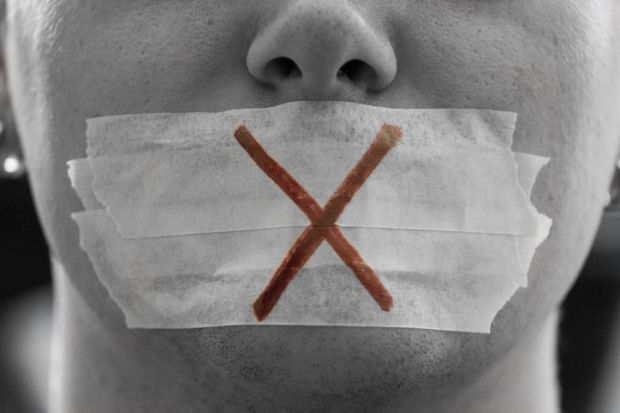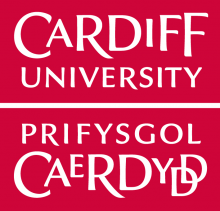Since 2015, the new year has brought the higher education sector a belated, unwanted Christmas present, in the form of Spiked Online’s “free speech rankings”.
Supposedly a “league table” of shame, and festooned with more red and amber warning lights than a city centre gyratory system, these rankings purport to show how intellectual debate and freedom of expression are being stifled at UK universities. This is, of course, a serious allegation, undoubtedly deserving – given recent media panic around this issue – proper investigation and analysis.
Sadly, however, Spiked’s reports really don’t pass muster in this regard.
About 85 per cent to 90 per cent of Spiked’s evidence each year amounts merely to human resources policies and codes of conduct, of a sort now standard in most large organisations and often required by law. Spiked offers no evidence that these policies have ever been applied in a fashion that repressed free speech, or that they have generated discontent among staff, students or the wider public.
As the magazine itself admits (when explaining its methodology), many highlighted policies “do not explicitly limit speech” but only “have the potential to be used to that end”, because of what Spiked regards as ambiguous phrasing.
Many of the things presented as significant restraints on free speech are frankly absurd. Is it unduly repressive to insist, as the University of Cambridge does, that internet porn is not downloaded on to work computers? A clause allows such material to be accessed for legitimate research purposes.
Is Cardiff University really stifling intellectual debate when it asks staff not to wolf-whistle, catcall or verbally abuse colleagues? Are students’ unions curtailing free speech when they refuse to accept advertising from predatory payday loan companies? This list could be greatly extended.
Alongside university and students’ union policies, Spiked, in some cases, lists actual incidents supposed to have occurred on campuses. Here again, however, there are many misrepresentations.
First, even though these rankings come out annually and supposedly record incidents from the preceding 12 months, Spiked frequently references episodes that it has already cited in previous reports. This helps create the impression of a bigger problem than there actually is. Strip out these repetitions, and what actually strikes you most years is the paucity of supposedly problematic episodes.
Take the “epidemic” of student no platforming that we hear so much about in the press (in articles that often cite Spiked as a credible source for their accusations). Spiked is an organisation dedicated to trawling university documents for anything that remotely resembles a free speech infringement but when it came to last year’s report it could find no evidence of students preventing anyone speaking on campus.
This year, it offers just one case that it clearly wishes to present as a form of no platforming, the cancellation of a talk at the University of Sussex by Ukip MEP Bill Etheridge, allegedly because of the conditions imposed on him. This episode was more complex and nuanced than media reports generally acknowledge; I would argue that it doesn’t really constitute no platforming. But even if we construe it in this way, what we have, from Spiked’s own findings, is just one incident across two years and more than 100 universities. This hardly seems like an epidemic.
There’s not space here to enumerate all the ways that Spiked distorts and decontextualises many incidents and policies. As a final example, however, it’s worth flagging one of the magazine’s headline claims in its accompanying analysis of its findings: namely, that 10 universities (of the 115 surveyed) have apparently “banned” publications.
Spiked’s own data, though, seems to tell a different story. Their site is cumbersome to use, but the only way that I can arrive at that figure is to include two cases of universities not “banning” the works of Holocaust denier David Irving, but simply relocating them in their libraries; they remain available to anyone who wants to consult them.
The other eight cases are students’ unions supposedly banning particular newspapers although, of course, “ban” here actually means “cancel[ling] their subscriptions”, or in some cases, “refus[ing] to stock [them] in SU shops”.
No unions can stop students buying newspapers elsewhere and bringing them on to campus, and to the best of my knowledge, no unions attempt this. These union bans, therefore, might fairly be dismissed as mere gesture politics. However, unless students are living on a very remote campus, these sort of bans aren’t any sort of meaningful censorship. And from Spiked’s own data, only a tiny minority of unions sanction any newspapers in this way.
How much should we care about what I see as Spiked’s misrepresentation of freedom of debate on British campuses? Many Times Higher Education readers will be inclined to pay it little mind. Spiked is principally the mouthpiece of a tight-knit group of writers and academics, some of whom first came together as the Revolutionary Communist Party, but who have since espoused an extreme libertarianism.
Their principal targets these days are liberal ideas and institutions, making them in essence, as the journalist Suzanne Moore recently put it, “handmaidens of the alt-right”.
Regrettably, Spiked’s smearing of universities and students seems to be gaining influence. They are sponsored by the Joseph Rowntree Reform Trust, who I suspect have never looked in any great detail at the data that the magazine assemble. Many journalists are happy to cite them as an authoritative source of information about the state of UK universities.
Most worryingly of all, at the initial hearing of the recent parliamentary select committee looking into free speech issues in higher education, three of the four witnesses called were connected with the Spiked network – and again, it is apparent that committee members were willing to take at face value Spiked’s evaluation of the current situation without actually checking for themselves the supposed “evidence” assembled by the magazine.
Carl Thompson is reader in English at the University of Surrey.
Register to continue
Why register?
- Registration is free and only takes a moment
- Once registered, you can read 3 articles a month
- Sign up for our newsletter
Subscribe
Or subscribe for unlimited access to:
- Unlimited access to news, views, insights & reviews
- Digital editions
- Digital access to THE’s university and college rankings analysis
Already registered or a current subscriber? Login









